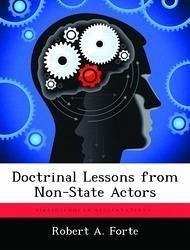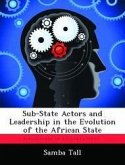The mode of warfare is changing. State on state conflict is no longer the primary approach to war. A phenomenon known as Gray Area War is on the rise. Gray Area War is defined as a conflict where at least one of the antagonists is a non-state entity and the method is combining elements of traditional war fighting with organized crime. This method of warfare is eclipsing state on state conflict. The world is changing at an alarming pace. Alvin and Heidi Toffler outline the cause of these changes and attribute them to the Third Wave. The Third Wave is built upon the information revolution and globalization. The shrinking world is causing fractures and divisions in many states throughout the world. Not only are states in decline, but so is the mode of warfare that states traditionally wage. Though state on state conflict is decline, warfare will continue. The new approach to warfare, Gray Area Warfare, has risen for many reasons. Fractured states are prime breeding ground for a disenfranchised population. The disenfranchised are susceptible to many messages of hope. The message becomes a rallying point for many followers to start a mass movement. The mass movement becomes the non-state actor who is prepared to wage Gray Area War. The non-state actor is changing the way western forces understand warfare. The mental and moral approach used by this entity is a radical departure from the state on state view of the recent past. The non-state actor is less accountable and more willing to violate current laws and conventions to achieve its aims. Without accountability the non-state actor maintains freedom of action in dislocating state military forces. The dislocation is accomplished by the manipulation of perceptions of the uncommitted, loyal followers and opponent. The ability to manipulate perceptions is the strength and effectiveness of the non-state actor. The non-state is more networked, non-linear and self- organizing. These characteristics give strength to the non-st
Bitte wählen Sie Ihr Anliegen aus.
Rechnungen
Retourenschein anfordern
Bestellstatus
Storno









